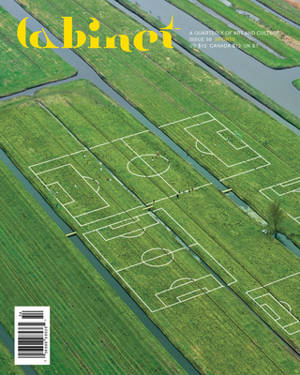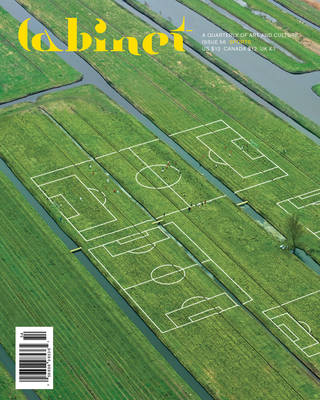
- Afhalen na 1 uur in een winkel met voorraad
- Gratis thuislevering in België vanaf € 30
- Ruim aanbod met 7 miljoen producten
- Afhalen na 1 uur in een winkel met voorraad
- Gratis thuislevering in België vanaf € 30
- Ruim aanbod met 7 miljoen producten
Zoeken
Omschrijving
Athletic contests are nearly as old as human society itself. They have grown and flourished across the millennia and around the world, and today form the basis of a global industry worth in excess of six hundred billion dollars. And such games are not just for the players: audiences' fascination with sports also make them a productive sphere through which to consider questions of spectatorship, tribalism and belonging. Cabinet 56, with a special section on "Sports," includes Leland de la Durantaye on the new geometries of tennis; Carla Wing on squash and the colonial history of rubber; and Hal Foster on the ritualistic dimensions of soccer. Elsewhere in the issue: Adam Jasper on how homes built by freed slaves in Liberia mimicked the Palladian style of US plantation mansions; Augusto Corriere on the disassembly and reassembly of a Munich theater during World War II; Carol Mavor on the aesthetics of middleness; and more.
Specificaties
Betrokkenen
- Auteur(s):
- Uitgeverij:
Inhoud
- Aantal bladzijden:
- 112
- Taal:
- Engels
Eigenschappen
- Productcode (EAN):
- 9781932698640
- Verschijningsdatum:
- 23/06/2015
- Uitvoering:
- Paperback
- Formaat:
- Trade paperback (VS)
- Afmetingen:
- 198 mm x 246 mm
- Gewicht:
- 385 g

Alleen bij Standaard Boekhandel
+ 33 punten op je klantenkaart van Standaard Boekhandel
Beoordelingen
We publiceren alleen reviews die voldoen aan de voorwaarden voor reviews. Bekijk onze voorwaarden voor reviews.








